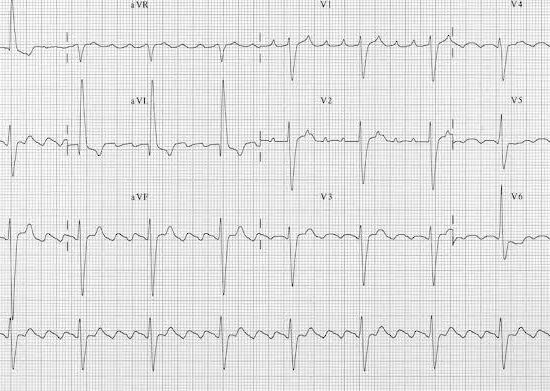How Should Nutrition Be in Heart Diseases?
Heart health is one of the fundamental building blocks of overall health, and nutrition is one of the most important factors for maintaining heart health. Heart diseases are a common health problem worldwide, and wrong eating habits are among the most important factors that increase the risk of heart disease. It is of great importance to follow a correct nutrition program to protect against heart diseases or to prevent the progression of an existing heart disease. In this article, we will discuss what kind of diet you should create for heart health and which foods are heart-friendly.
The Importance of Nutrition in Heart Diseases
Heart diseases are often associated with risk factors such as high blood pressure, high cholesterol, diabetes and obesity. Nutrition is one of the most effective ways to control these risk factors and improve heart health. A heart-friendly diet lowers blood pressure, balances cholesterol levels, ensures blood sugar control and keeps body weight at an ideal level. A healthy eating plan plays an important role in reducing the risk of serious heart diseases such as heart attack and stroke.
Suggestions for Heart-Friendly Nutrition
To maintain heart health and prevent heart diseases, it is necessary to adopt a balanced and healthy diet. Here are important recommendations to consider for a heart-friendly diet:
Consume Healthy Fats
The type of fats used in the diet has a big impact on heart health. Saturated fats and trans fats can increase the level of bad cholesterol (LDL) and lead to atherosclerosis. Therefore, it is important to avoid such fats and choose healthy fats instead.
- Avoid Saturated Fats and Trans Fats: Limit saturated fats found in red meat, butter, full-fat dairy products and processed foods. Stay away from margarine, fast food and packaged foods containing trans fat.
- Consume Healthy Fats: Foods containing healthy fats such as olive oil, avocado, hazelnuts, walnuts and almonds support heart health. In addition, omega-3 fatty acids found in fish are also protective against heart diseases. Try to consume at least two servings of fatty fish (salmon, sardines) per week.
Reduce Salt Consumption
Excessive salt consumption leads to high blood pressure, increasing the risk of heart disease. It is important to limit daily salt intake to maintain heart health. According to the World Health Organization, no more than 5 grams (1 teaspoon) of salt should be consumed per day.
- Avoid Processed Foods: Avoid foods containing high salt, such as canned foods, ready-made soups, pickled products and processed meats (sucuk, sausage).
- Reduce Salt in Foods: Add less salt to your meals and choose natural sweeteners such as various spices, lemon and garlic instead of salt.
Consume Fiber-Rich Foods
Fiber foods help regulate cholesterol levels and support heart health. Additionally, fiber foods are effective in controlling blood sugar and weight management.
- Whole Grains: Choose whole grain products such as whole wheat bread instead of white bread, brown rice and bulgur instead of white rice.
- Vegetables and Fruits: Vegetables and fruits are rich in fiber and contain antioxidants that protect heart health. Make sure to consume at least 5 portions of vegetables and fruits every day.
- legumes: Legumes such as beans, lentils, chickpeas and peas are a source of both protein and fiber and are beneficial for heart health.
Avoid Refined Sugar
Excessive sugar consumption can lead to obesity, diabetes and heart diseases. It’s important to avoid refined sugar to protect your heart health.
- Stay Away from Sugary Drinks: Choose water or unsweetened herbal teas instead of sodas, fruit juices and ready-made sweeteners.
- Desserts and Snacks: Instead of sugary desserts and snacks, you can choose natural snacks such as fruits, nuts or yoghurt.
Choose Fish and Vegetable Proteins as Protein Sources
A heart-healthy diet includes more plant- and seafood-based proteins while limiting red meat consumption.
- Fish and Seafood: Fish such as salmon, sardine and mackerel, which are rich in omega-3 fatty acids, are heart-friendly. Try to consume fish at least twice a week.
- Vegetable Protein Sources: Vegetable proteins such as lentils, chickpeas, beans and soy are beneficial for heart health. Reducing meat consumption and switching to vegetable proteins reduces the risk of heart diseases.
Limit Alcohol Consumption
Excessive alcohol consumption can lead to heart diseases such as high blood pressure, heart failure and arrhythmia. If you consume alcohol, be sure to do so in moderation. It is recommended not to consume more than one unit of alcohol per day for women and two units per day for men.
Maintain Your Ideal Weight
A healthy weight is an important way to reduce the risk of heart disease. Excess weight can trigger conditions that can lead to heart disease, such as high blood pressure, diabetes and high cholesterol. To protect your heart health, try to maintain your ideal weight with a healthy diet and regular exercise.
Consume Liquids Regularly
Getting enough fluids in the body helps regulate blood circulation and protect heart health. Make it a habit to drink at least 2-2.5 liters of water a day. Avoid sugary and carbonated drinks and consume healthy drinks such as water, unsweetened herbal teas and ayran.
Diets That Protect Heart Health
There are many nutritional models that support heart health. These diets contain important principles that reduce the risk of heart disease and support overall health. Here are some heart-friendly diets:
Mediterranean Diet
The Mediterranean diet is a nutritional model based on fresh vegetables and fruits, whole grains, healthy fats (especially olive oil), fish and vegetable proteins. This diet is known for its protective effect against heart diseases and is widely recommended around the world.
DASH Diet
DASH diet (Dietary Approaches to Stop Hypertension) was developed to control high blood pressure and protect heart health. This diet contains foods that are beneficial for heart health with low salt, fat and sugar content.
Conclusion
It is extremely important to establish a healthy diet to prevent heart diseases or prevent the progression of existing heart diseases. Simple but effective eating habits, such as avoiding saturated and trans fats, consuming fiber-rich foods, and limiting salt and sugar intake, play a major role in protecting your heart health. You can live a long and healthy life by taking care of your heart health.






